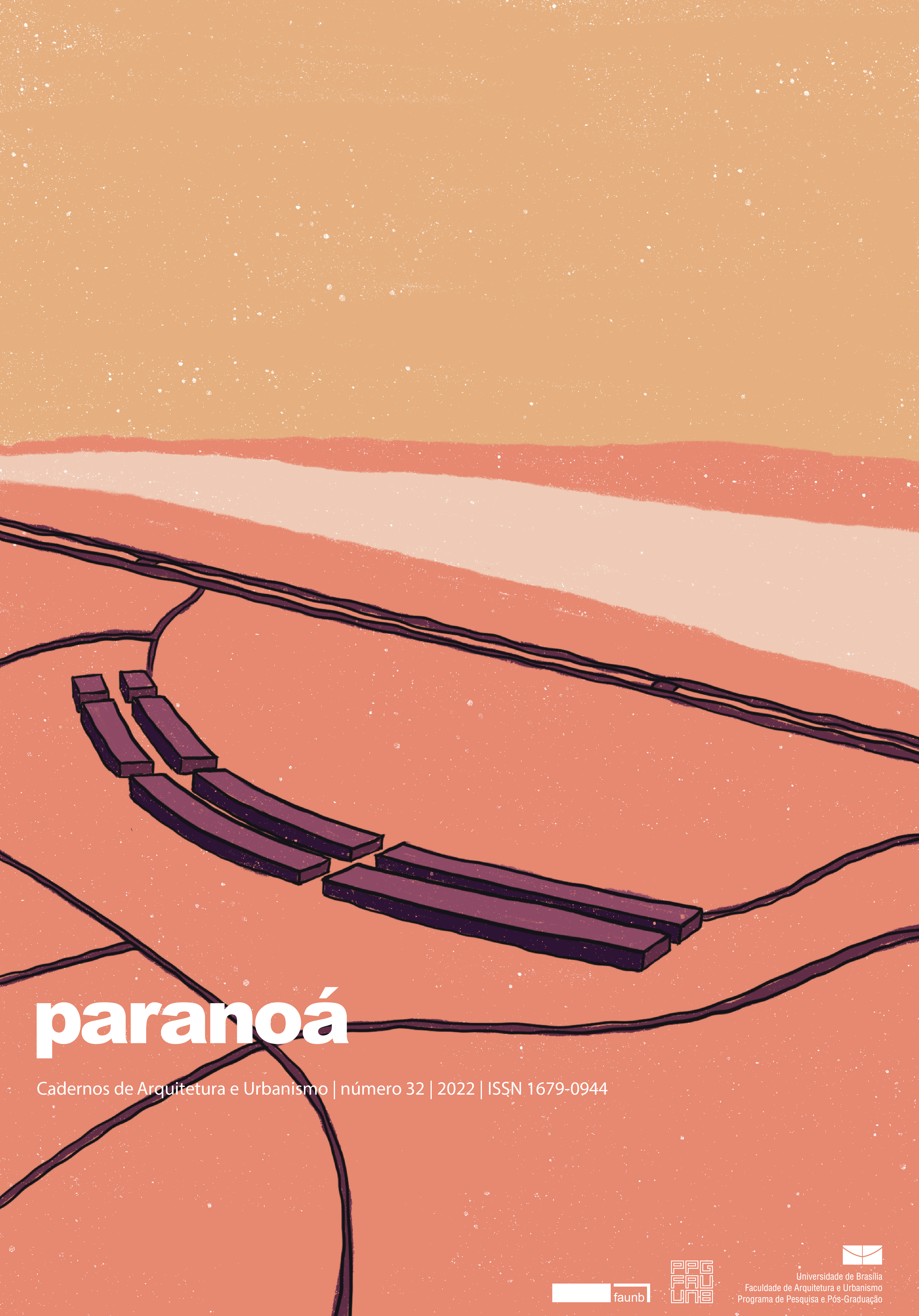Life trajectory: an investigation in the personal archive of architect Jorge Caron
DOI:
https://doi.org/10.18830/issn.1679-0944.n32.2022.23Keywords:
Personal archives, Architecture, Collection, Digitization, PublicAbstract
The article presents a reflection on the research and digitization process of the Jorge Caron Archive, which is under the protection of the Library of the Institute of Architecture and Urbanism of the University of São Paulo (IAU-USP) and was funded by the Unified Scholarship Program (PUB -USP). Architect educator Jorge Caron (1936-2000), convinced of the comprehensive and transforming potential of his profession, brought together important innovations for the social, constructive and aesthetic field in his professional trajectory, a legacy materialized in the boards, drawings, sketches, objects and texts produced by throughout his career, gathered in the collection. Known for his polyvalent profile – architect, designer, set designer, visual artist, educator – Caron, as well as other architects from the post-Brasilia generation, had a wide and significant production, in a set of architectural works and intellectual legacy still little studied. Organizing and expanding access to the collection, through the recognition of representative materials from its extensive production, as well as digitizing its collection, are practices with constant challenges, whose purpose extends the historiographical debate, enhances personal archives and their public access. As an object of extroversion in this work, the horizon is the creation of an exhibition, promoting the enhancement of its memory and actions to safeguard and conserve architectural collections.
Downloads
References
ANNA, J. S; CAMPOS, S. O; CALMON, M. A. M. Diferenças e semelhanças entre arquivos e bibliotecas: o profissional da informação em evidência. 2015.
BRITO, G. F. de, E. A. COSTA, e L. M. R. VELLOSO. Digital Platform for Dissemination of the FAUUSP Architecture and Design Collections. Brazilian Journal of Information Science: Research Trends, vol. 15, outubro de 2021, p. e02125, doi:10.36311/1981-1640.2021.v15.e02125.
COSTA, C. M. L.; FRAIZ, P. M. V. Como Organizar Arquivos Pessoais: Manual. São Paulo: Arquivo do Estado, 2001.
GONÇALVES, J. Como Classificar e Ordenar Documentos de Arquivo. São Paulo: Arquivo do Estado, 1998.
LIRA, J. .; DELECAVE, J.; PRÓSPERO, V.; FIAMMENGHI, J. Acervos de arquitetura como espaço histórico de formação. Anais do Museu Paulista: História e Cultura Material, [S. l.], v. 29, p. 1-31, 2021. DOI: 10.1590/1982-02672021v29e53. Disponível em: https://www.revistas.usp.br/anaismp/article/view/181058. Acesso em: 10 maio. 2022.
RIBAS, E. M, ESCOREL, L. Os arquivos pessoais de Gilda de Mello e Souza e Antonio Candido. Revista do Instituto de Estudos Brasileiros, n. 76, p. 275-289, 2020.
ROCHA, M. A. B. A documentação Museológica no Núcleo de Estudos Açorianos: Análise de sistemas informacionais computadorizados. 2019.
MUCHACHO, R. Museus virtuais: A importância da usabilidade na mediação entre o público e o objecto museológico. In: Livro de Actas do 4º Congresso SOPCOM. 2005. p. 1540-1547.
MARTY, P.; TWIDALE, M. Lost in gallery space: A conceptual framework for analyzing the usability flaws of museum Web sites. First Monday, v. 9, n. 9, 6 Sep. 2004.
ROZESTRATEN, Arthur Simões; ANDRADE, Beatriz Moraes de; FIGUEIREDO, Fernanda Gastal (org.). Manual de Procedimentos Técnicos do Projeto Arquigrafia. 2ª ed. São Paulo: FAUUSP, 2018.
SEGAWA, Hugo. A fragilidade e o peso dos papéis. Jornal da USP, São Paulo, 17 set. 2020.
WISNIK, Guilherme. Falta de estrutura no Brasil respalda decisão de Paulo Mendes da Rocha. Folha de S. Paulo, São Paulo, 26 set. 2020.
Downloads
Published
How to Cite
Issue
Section
License
Copyright (c) 2022 Paranoá

This work is licensed under a Creative Commons Attribution 4.0 International License.
Autores que publicam nesta revista concordam com os seguintes termos:
- Autores mantém os direitos autorais e concedem à revista o direito de primeira publicação, com o trabalho simultaneamente licenciado sob a Licença Creative Commons Attribution que permite o compartilhamento do trabalho com reconhecimento da autoria e publicação inicial nesta revista. http://creativecommons.org/licenses/by/4.0
- Autores têm autorização para assumir contratos adicionais separadamente, para distribuição não-exclusiva da versão do trabalho publicada nesta revista (ex.: publicar em repositório institucional ou como capítulo de livro), com reconhecimento de autoria e publicação inicial nesta revista.
- Autores têm permissão e são estimulados a publicar e distribuir seu trabalho online (ex.: em repositórios institucionais ou na sua página pessoal) a qualquer ponto antes ou durante o processo editorial, já que isso pode gerar alterações produtivas, bem como aumentar o impacto e a citação do trabalho publicado (Veja O Efeito do Acesso Livre).















